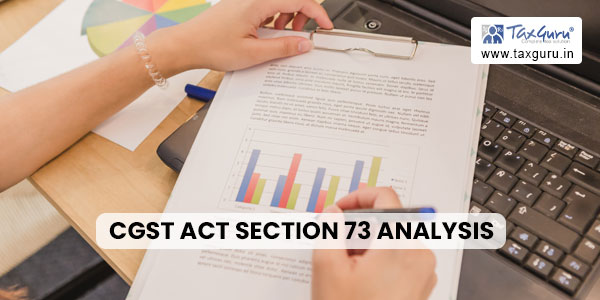Introduction: In a landmark legal battle at the Madras High Court, Titan Company Ltd has filed a writ petition challenging the clubbing of Show Cause Notices (SCNs) for multiple Assessment Years, asserting a violation of Section 73 of the CGST Act. This article delves into the details of the case, examining the legal aspects and the court’s decisive ruling.
In the High Court of Judicature at Madras, Writ Petition No. 33164 of 2023 and W.M.P. No. 32855 of 2023 were filed by Titan Company Ltd against the Joint Commissioner of GST & Central Excise in Salem and the Additional Commissioner of GST & Central Excise, Office of the Commissioner of GST & Central Excise (Audit), Coimbatore. In the said matter the Revenue Department (Respondent) had issued bunching of SCN(s) dated 28.09.2023 for five Assessment Years starting from 2017-18 to 2021-22.
The Hon’ble Court vide its order dated 18.12.2023, held that the contention of the Revenue Department that there is no time limit contemplated under Section 73 of the Act is not correct. Section 73(10) of the Act specifically provides a time limit of three years from the due date for furnishing of annual return for the financial year to which the tax due relates to. In the present case, notice was issued under Section 73 of the Act for determination of the tax and therefore, the limitation period of three years as prescribed under Section 73(10) would be applicable.

Further, by issuing bunching of show cause notices for five Assessment Years starting from 2017-18 to 2021-22, the respondents are trying to do certain things indirectly which they are not permitted to do directly and the same is not permissible in law. If the law states that a particular action has to be completed within a particular year, the same has to be carried out accordingly. The limitation period of three years would be separately applicable for every assessment year and it would vary from one assessment year to another. It is not that it would be carried over or that the limitation would be continuing in nature and the same can be clubbed. The limitation period of three years ends from the date of furnishing of the annual return for the particular financial year.
Therefore, issuing bunching of show cause notices is against the spirit of provisions of Section 73 of the Act and the Constitution Bench of the Hon’ble Apex Court in the decision reported in AIR 1966 SC 1350, State of Jammu and Kashmir and Others v. Caltex (India) Ltd has held that where an assessment encompasses different assessment years, each assessment year could be easily split up and dissected and the items can be separated and taxed for different periods. The said law was laid down keeping in mind that each and every Assessment Year will have a separate period of limitation and the limitation will start independently and that is the reason why the Hon’ble Supreme Court has held that each assessment year could be easily split up and dissected and the items can be separated and taxed for different periods. The said principle would apply to the present case as well.
Conclusion: The Madras High Court’s ruling serves as a precedent, establishing the legal framework for challenging the bunching of Show Cause Notices under Section 73 of the CGST Act. The court’s interpretation reinforces the importance of adhering to specific time limits for each Assessment Year and upholds the principle that assessments spanning multiple years can be dissected, ensuring fair and lawful taxation practices. This case marks a significant step in preserving taxpayers’ rights and maintaining the integrity of the GST legal system.
*****
Disclaimer: Nothing contained in this document is to be construed as a legal opinion or view of either of the author whatsoever and the content is to be used strictly for informational and educational purposes. While due care has been taken in preparing this article, certain mistakes and omissions may creep in. the author does not accept any liability for any loss or damage of any kind arising out of any inaccurate or incomplete information in this document nor for any actions taken in reliance thereon.





